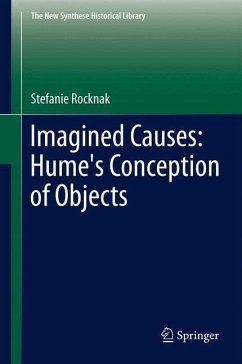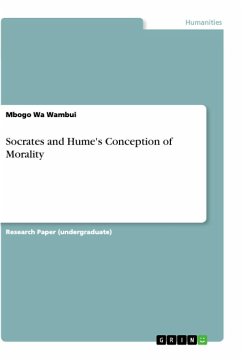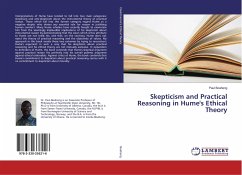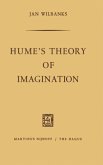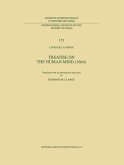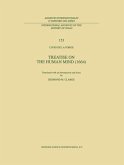This book provides the first comprehensive account of Hume's conception of objects in Book I of A Treatise of Human Nature. What, according to Hume, are objects? Ideas? Impressions? Mind-independent objects? All three? None of the above? Through a close textual analysis, Rocknak shows that Hume thought that objects are imagined ideas. But, she argues, he struggled with two accounts of how and when we imagine such ideas. On the one hand, Hume believed that we always and universally imagine that objects are the causes of our perceptions. On the other hand, he thought that we only imagine such causes when we reach a "philosophical" level of thought. This tension manifests itself in Hume's account of personal identity; a tension that, Rocknak argues, Hume acknowledges in the Appendix to the Treatise. As a result of Rocknak's detailed account of Hume's conception of objects, we are forced to accommodate new interpretations of, at least, Hume's notions of belief, personal identity,justification and causality.
From the book reviews:
"Rocknak's strategic choice of subject matter, the simplicity and explanatory power of her main argument, together with her painstaking, detailed work on the relevant texts, make this a breakthrough work in Hume's psychology. Indeed, it deserves to be regarded as the most important book on Hume published in more than a decade. ... We are very fortunate to have this volume, which moves us firmly forward in understanding Hume's model of the mind ... ." (Yoram Hazony, British Journal for the History of Philosophy, August, 2014)
"'The principle of individuation is nothing but the invariableness and uninterruptedness of any object, thro' a suppos'd variation of time'. Stefanie Rocknak's Imagined Causes is a highly original, exceptionally thorough, and extremely controversial attempt to provide a comprehensive account of how Hume reaches that conclusion." (William Edward Morris, The Philosophical Quarterly, January, 2014)
"Rocknak's strategic choice of subject matter, the simplicity and explanatory power of her main argument, together with her painstaking, detailed work on the relevant texts, make this a breakthrough work in Hume's psychology. Indeed, it deserves to be regarded as the most important book on Hume published in more than a decade. ... We are very fortunate to have this volume, which moves us firmly forward in understanding Hume's model of the mind ... ." (Yoram Hazony, British Journal for the History of Philosophy, August, 2014)
"'The principle of individuation is nothing but the invariableness and uninterruptedness of any object, thro' a suppos'd variation of time'. Stefanie Rocknak's Imagined Causes is a highly original, exceptionally thorough, and extremely controversial attempt to provide a comprehensive account of how Hume reaches that conclusion." (William Edward Morris, The Philosophical Quarterly, January, 2014)

